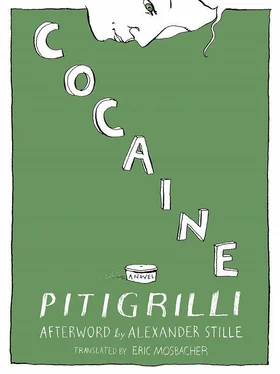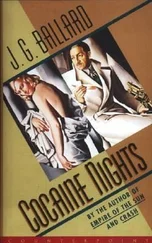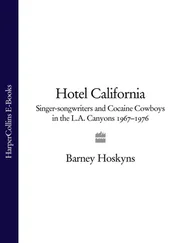Cocaine appeared in 1921; the following year, Benito Mussolini and his fascist party came to power after the so-called “March on Rome.” Interestingly, Mussolini, himself a deep cynic and perhaps the shrewdest interpreter of the post-World War I mood, appears to have been a fan of Pitigrilli’s novels. When the books were attacked for their immorality, Mussolini defended them: “Pitigrilli is right… Pitigrilli is not an immoral writer; he photographs the times. If our society is corrupt, it’s not his fault.”
But as Mussolini’s fascism evolved from a transgressive, radical opposition movement into Italy’s new political order, Pitigrilli was bound to be regarded with increasing suspicion. Much of his withering sarcasm was directed at the patriotic and nationalistic nostrums that were the sacred gospel of fascism. In his novel The Chastity Belt , Pitigrilli would write: “Fatherland is a word that serves to send sheep to slaughter in order to serve the interests of the shepherds who stay safely at home.”
Tito Arnaudi’s thoughts about patriotic duty, at least when viewed through fascist spectacles, are similarly blasphemous:
When I was twenty they told me to swear loyalty to the King… I took the oath because they forced me to, otherwise I wouldn’t have done it. Then they sent me to kill people I didn’t know who were dressed rather like I was. One day they said to me: “Look, there’s one of your enemies, fire at him,” and I fired, but missed. But he fired and wounded me. I don’t know why they said it was a glorious wound.
In 1926, Pitigrilli was put on trial for obscenity and narrowly acquitted. Perhaps sensing the need for political protection, Dino Segre applied — and was rejected — for membership in the fascist party in 1927 and 1928. Then one day in 1928, Pitigrilli descended from a train in his native Turin and was stopped by Pietro Brandimarte, a powerful local fascist official, who slapped him in the face and arrested him for alleged antifascist activities. Brandimarte had been the instigator of an infamous episode in the fascist seizure of power, the “Turin massacre,” in which he and his squads murdered twenty-one antifascists just two months after Mussolini took over the government in 1922.
But the case involving Pitigrilli’s alleged antifascist activities turned out like a bizarre episode in one of his novels, in which all the basest human instincts — greed, lust, anger, the desire for revenge — took on the mask of political principle and patriotism. What appears to have happened was this: some people eager to take over the editorship of Pitigrilli’s successful magazine, Le Grandi Firme , convinced one of his former lovers, the writer Amalia Guglieminetti, to destroy him. Guglieminetti was a society woman with literary ambitions, who dressed like a flapper and carried a long cigarette holder; she could have come straight off the pages of Cocaine . Guglieminetti had taken up with the fascist leader Brandimarte after her relationship with the writer ended, and she agreed to supply Pitigrilli’s enemies with personal letters written in his hand. These letters allegedly contained insults to Mussolini and fascism. But the forgeries were so crude that Pitigrilli was able to expose them at trial, forcing Guglieminetti to break down and confess on the witness stand.
Pitigrilli’s novel-like prosecution was the fulfillment of one of his deeply cynical injunctions: “To your friends and your lovers never leave in their hands any weapons they can one day use against you… The woman you love or who leaves you is your enemy; since all women are whores, including those who don’t get paid, she will tell her new lover, between one coitus and another, the things you told her, in great secret, between one coitus and another.”
Perhaps because of his sense of extreme vulnerability — or because his brand of cynical satire was less suited to the totalitarian thirties than the roaring twenties — Pitigrilli appears to have begun to work at ingratiating himself with the fascist regime. There is a document in the Italian state archives from 1930 that indicates he agreed to act as a police informant. In 1931, he sent a new book to Mussolini with the following dedication: “To Benito Mussolini, the man above all adjectives.”
What is quite certain and well-documented is that in the mid-1930s he became an extremely active and prolific spy of the OVRA, fascist Italy’s secret political police force. What makes his contributions especially intriguing is that he informed on a very rich and interesting circle of intellectuals and writers who would go on to become important parts of Italy’s antifascist cultural elite: the publisher Giulio Einaudi, Leone Ginzburg and his future wife Natalia Ginzburg, the painter and writer Carlo Levi, and the circle of Adriano and Paola Olivetti. Pitigrilli’s sudden usefulness to the secret police was sparked by a specific event: the arrest in March of 1934 of a young Turinese Jew, Sion Segre, who happened to be Pitigrilli’s first cousin. Sion Segre had been caught trying to smuggle into Italy from Switzerland a raft of newspapers and leaflets of an organization called Giustizia e Libertà (Justice and Liberty), the main non-Communist left-of-center antifascist group, whose leaders were living in exile in Paris. Following Sion Segre’s capture, fascist police arrested fourteen others suspected of ties to the organization. Nine of the alleged conspirators were from Jewish families and some of the Italian newspapers reported the story by referring to a Jewish anti-fascist conspiracy, the first ominous note of an anti-Semitic campaign in Italy.
Why did Pitigrilli — or rather, Dino Segre — lend himself to such a distasteful operation, spying on his own first cousin and his friends? The answer is purely speculative, since Pitigrilli denied the charge till the end of his life — and, since Pitigrilli was never placed on trial, it was never proven in a court of law. (His son remains unconvinced to this day.) There is plenty of evidence of his spying activity, however; the official OVRA records list him as Agent Number 373 and spy reports refer to events that make his identity clear. The victims of his spying confirmed that Pitigrilli was in fact the person with whom they had the various contacts described in the reports. As to motive, Pitigrilli’s own writings offer some obvious clues.
In an autobiographical book published after World War II, entitled Pitigrilli Parla di Pitigrilli (Pitigrilli Speaks About Pitigrilli), he reveals that he loathed his first cousin and the Jewish half of his family. Dino Segre was the illegitimate child of a Jewish father (also named Dino Segre) and a young Catholic mother. His father did not marry his mother until their child was eight years old. His father’s well-to-do Jewish family never fully accepted Pitigrilli’s mother as a daughter-in-law and did not treat the illegitimate product of their union — the younger Dino Segre — as a true grandson. Pitigrilli’s description of his father’s family in this autobiography is laced with deep, anti-Semitic hatred.
I was eight years old when my father and mother married and all the Jewry descended on my house: my grandmother, aunt, the crazy uncle, my cousins. My mother opened her living room to a flock of petulant, know-it-all parrots related to my grandmother, my aunt and uncle, who tolerated my mother from a distance, and bent over me with their disdainful nostrils, asking me to name the capital of Sweden, in order to show that if one doesn’t have the benefit of circumcision one cannot know what their sons know.
In The Chastity Belt , Pitigrilli would make the following claim:
Bastards should be considered as an elect, privileged caste… like the Japanese samurai… All men should be bastards so that they care for no one and are attached to nothing. The bastard! What could be more beautiful in the world than to be a bastard so that one can despise everything without making an exception for one’s own father and mother?!
Читать дальше



